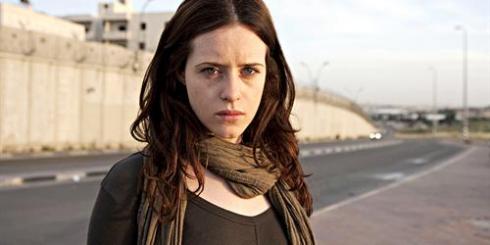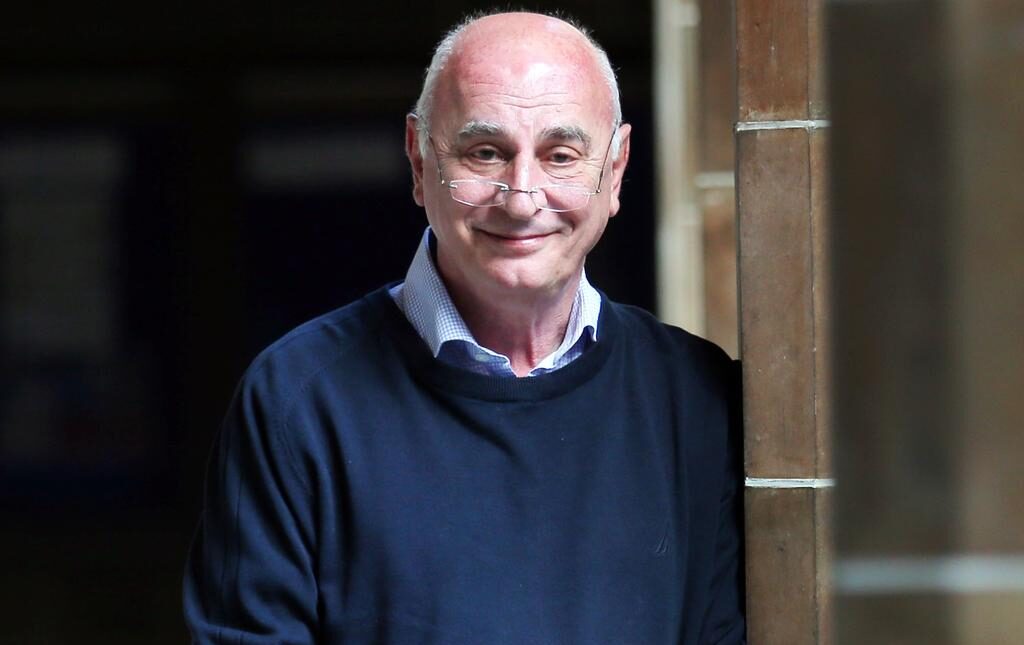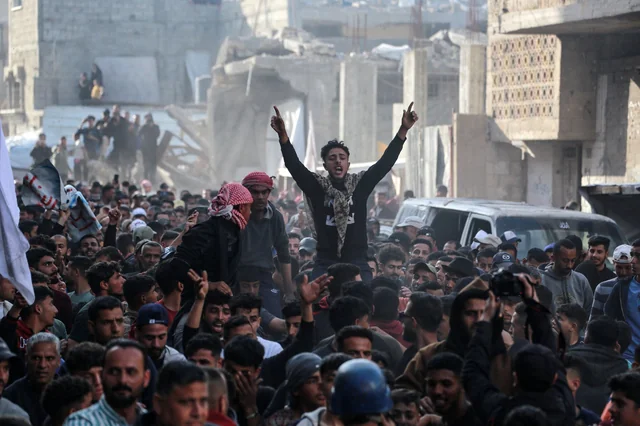UPDATES
“The Promise”
November 29, 2011 | Tzvi Fleischer

On Sunday night, SBS-TV screened the first of four episodes of a controversial British historical drama set in pre-state and contemporary Israel, entitled “The Promise”. When it was screened in Britain by Channel 4 in February, it led to an official letter of complaint by the Board of Deputies of British Jews, as well as strong critiques from Booker prize winning novelist Howard Jacobson, noted British academic expert on the Holocaust David Cesarani, and others.
In addition, in France, the body representing the French Jewish Community, the Representative Council of French Jewish Institutions (CRIF) also wrote a letter protesting the drama, and a demonstration of more than 500 people was staged outside the station that re-broadcast it, Canal+.
I include below some of the critiques of “The Promise” from Britain for the benefit of Australian audiences.
Howard Jacobson wrote of the drama series:
Forget Holocaust denial. Holocaust denial is old hat. The new strategy – it showed its hand in Caryl Churchill’s Seven Jewish Children, and surfaced again in Channel 4’s recent series The Promise – is to depict the Holocaust in all its horror in order that Jews can be charged (“You, of all people”) with failing to live up to it. By this logic the Holocaust becomes an educational experience from which Jews were ethically obliged to graduate summa cum laude, Israel being the proof that they didn’t. “Jews know more than anyone that killing civilians is wrong,” resounds an unmistakably authorial voice in The Promise. Thus are Jews doubly damned: to the Holocaust itself and to the moral wasteland of having found no humanising redemption in its horrors.
It matters not a jot to me that the writer/director of The Promise is a Jew. Jews succumbing to the age-old view of them and reviling what’s Jewish in themselves has a long history. Peter Kosminsky would have it that his series is about Israel, not Jews, but in The Promise Israel becomes paradigmatic of the Jews’ refusal to be improved by affliction.
In a morally intelligent world – that’s to say one in which, for starters, Jews are not judged more harshly than their fellows for having been despatched to concentration camps – The Promise would be seen for the ludicrous piece of brainwashed prejudice it is.
David Cesarani argued that the drama is an effort at British self-exculpation and takes the director, Peter Kosminsky to task for leaving out any sense of why the British were in Palestine in the first place. He notes:
It was the British who promised Palestine to the Jews as a Jewish national home in 1917 and the British who flooded Palestine with troops to protect a vital piece of imperial real estate in 1945. Zionist aspirations, which the British had fostered, and Palestinian Arab opposition to them, were a problem only in so far as they complicated British planning for the cold war…
This is the central conceit, and deceit, of Kosminsky’s epic. The British were in Palestine for their own interests and when it no longer suited them they left. To conceal this fact he has to perpetrate a massive historical distortion. Although The Promise is insufferably didactic, no one mentions the Balfour declaration…
During the second world war Palestine was an essential military base, second only in importance to Egypt…This was why the British beefed up the garrison there. The paratroops were not sent to separate Jews and Arabs. They joined the 1st Infantry Division as Britain’s strategic reserve in the Middle East. When the Zionist movement launched its campaign to drive the British out, British troops were deployed to suppress a Jewish insurrection that threatened Britain’s route to India, its oil supplies, and its entire regional strategy. Jews and Arabs were just an irritant in a much bigger imperial conflict. The tragedy for both lay in their expendability. When the costs outweighed the benefits of staying in Palestine, the British pulled out with little concern about what happened next…
in Kosminsky’s version we are absolved of any responsibility for what is happening there. He has turned the British, who were the chief architects of the Palestine tragedy, into its prime victims. The Promise is a glossy exercise in self-exculpation. Someone must be responsible, though, and the way he rewrites history that can only be the Jews. Ultimately, Kosminsky turns a three-sided conflict into a one-sided rant.
Simon Round, the arts writer at the Jewish Chronicle, comments of “The Promise” that it could have been written by the Palestinian nationalist organisation Fatah. He is particularly critical of the way the historical events portrayed in the drama are selected, so that the hero of the story, Len, a British soldier in mandate Palestine, only sees events that reflect negatively on the Jews of Palestine, but never the Arabs:
If you knew nothing about the conflict, you would infer from this that Israelis are impossibly wealthy (portrayed as living in large houses with swimming pools) and that the Israeli soldiers in the Territories are universally unfeeling and brutal.
The only stones we see being thrown are by Orthodox Jewish children at Arab girls. From Len’s story you would view the pre-state Jewish militias as cynical, manipulative and murderous, while the Arabs of the time are portrayed as defenceless and fearful.
Jewish atrocities, such as the hanging of two British soldiers, the bombing of the King David Hotel and the Deir Yassin massacre are dealt with in graphic detail. There is no mention of the fact that the mainstream Jewish leadership condemned these actions.
Likewise, there is no mention of any Arab actions during this period – for example, the siege of Jerusalem (which might have merited a mention), as might the Hadassah convoy massacre of 79 Jews, including many doctors and nurses.
The combined invasion of all the Arab armies in 1948 against a tiny force of ill-equipped Jews is dismissed as almost an irrelevance.
He notes that the drama has a very clear political message which is even spelled out in the final episode:
the message, which becomes sickeningly apparent in the final episode, is put into words through heroic Len…He writes in his diary: “So now the Jews have their precious state…. But this is a state born in violence, in cruelty to its neighbours. I can’t see how it can hope to prosper.”
The letter of complaint from the Board of Deputies in full follows:
Mr David Abraham
Chief Executive
Channel 4
124 Horseferry Road
London SW1P 2TX
CC: Ms Tessa Ross CBE3 March 2011
Dear Mr Abraham
As President of the Board of Deputies of British Jews, the representative body of the UK Jewish community, I write to convey our grave concerns following the broadcast of the Channel 4 drama series, The Promise.
We recognise that there are widely divergent views on the situation in Israel and the Palestinian Territories both among the general public and indeed within our own community. As the umbrella organization of British Jewry we welcome a plurality of opinions. However any dramatisation of this extremely complex conflict must be carefully balanced to reflect the suffering and narrative of both sides. Unfortunately, in this The Promise failed.
I wish to convey to you the depth of feeling and disappointment within the Jewish community about the way in which The Promise consistently demonised Jews, by using distasteful stereotypes and even comparing the actions of the Nazis during the Holocaust to those of Jews in mandate Palestine.
Throughout the series, almost without exception, an image was created of the callous, insensitive, disloyal Jew. By portraying only the Jews in this way, The Promise became a propagandist caricature. I draw your attention, for example, to the scene when Len was ambushed in his jeep in Haifa. As his men are shot in the head, evidently rich Jews continue to eat, drink and laugh in road side cafes. Few opportunities were missed to refer to’ Jews’ and the’ Jewish army’.
At the end of the series, we discover that the eponymous ‘promise’ was that of Len to Muhammad to return the key to his house in Haifa. Erin finally fulfils that ‘promise’ – loyally defending a suicide bomber’s home from demolition and returning the key to Muhammad’s grand-daughter. Meanwhile, every Jew that Len grows close to betrays him – from Clara to his Jewish army colleague.
Similarly, we witness countless Arabs and British soldiers being killed by Jews. On only one occasion in the four episodes of The Promise do we see a Jewish person die – shot by Len as he was protecting the Arab family he had befriended. Where for example were the Arab riots against the British army? Why is there no explanation towards the end of the series of the collusion of all surrounding Arab states, together with Iraq, to reject the UN mandate for a two state solution and drive the inhabitants of the nascent State of Israel into the sea?
Direct parallels are drawn between the bombing of the King David hotel in Jerusalem and a modern-day jihadist suicide bombing, similar to the one experienced by citizens in the UK in July 2005. What the programme fails to mention, for example, are the warning phone calls made before the King David attack and the fact that members of the Jewish mainstream group, the Hagannah, helped arrest the Jews responsible for the attack. The apology to the King of Jordan, issued by the Jewish mainstream in Palestine after the Deir Yassin massacre, receives no mention, just as the attack on a Jewish convoy four days later, killing seventy nurses and doctors, is simply ignored.
I include this limited list of inaccuracies by way of example only to demonstrate that the content of the The Promise clearly did not serve to inform or present a true picture of the situation at the time, but rather a very specific political agenda that unfortunately resulted in the demonisation and dehumanisation of the Jewish protagonists and, by association, all Jews, including in this country, who support Israel.
I refer you most particularly to the penultimate scene of the series, which depicted Len on his journey home. In his final diary entry he says,
“We’ve left the Arabs in the shit. But what about the Jews and their bloody state for which they fought so hard? Three years ago I would have said give them whatever they want, they deserve it after all they have been through. Now I’m not so sure. This precious state of theirs has been born in violence and in cruelty to its neighbours. I’m not sure how it can thrive.”
With this statement, The Promise draws a totally one sided conclusion. Instead of seeing the conflict as the result of the incompatible aspirations of two peoples in one land it becomes a function of the violence and cruelty of the Jews so extreme as to deprive them of the sympathy for their past suffering. The reference to neighbours skates over the fact that those neighbours invaded Israel the day after it declared independence with a view to wiping it off the map.
On behalf of our community, I would request that Channel 4 does some serious soul searching, as a responsible and respected broadcaster, and considers the serious ramifications of The Promise. As a minority group who already suffer from verbal and physical abuse, I fear that the effects of the dehumanization of Jews portrayed throughoutThe Promise will leave the Jewish community of this country feeling threatened and endangered.
I also request a meeting with you, at your earliest convenience, to address the points laid out above in order to find a productive way forward for Channel 4 to engage with the Jewish community on matters relating to the conflict in the Middle East.
Yours sincerely,
Vivian Wineman
President
The Israeli embassy in London also publicly criticised the drama, saying it was the “worst example of anti-Israel propaganda” they have ever seen on television and reported they had received more complaints related to it than to any television program aired in years.
Meanwhile, some of the Israeli extras who worked on the film reportedly said they were shocked and horrified by the final result.
Tzvi Fleischer
Tags: International Jewry





